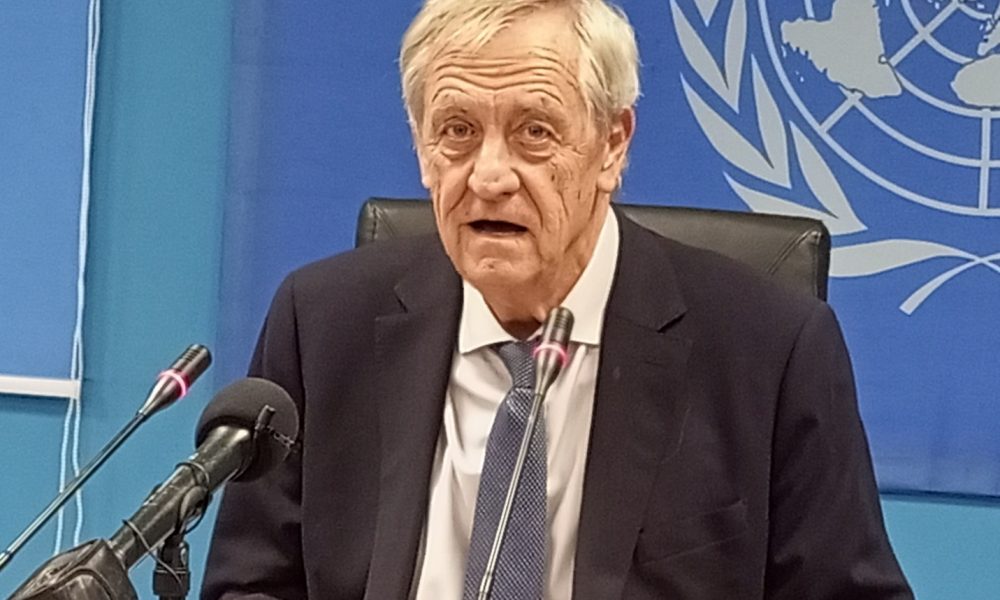By Bida Elly David
United Nations Mission in South Sudan (UNMISS) said South Sudan remains the most dangerous country on the globe in terms of human rights violations.
According to UNMISS, this could be evidenced by the continuous incidences of attacks on aid workers and human rights violations.
UNMISS boss and special representative of the secretary general, Mr. Nicholas Haysom said the quarterly human rights report showed 12% invalid incidents affecting civilians compared to the report of last year.
He said the absence of strong and formal judicial mechanisms in various locations in South Sudan has been dictated by a lack of accountability, thus increasing senses of impunity.
“South Sudan remains a country that is the most dangerous place to work as an aid worker, counting the number of workers that have been killed. I was profoundly alarmed that the human rights team has recorded that at least 22 civilians have been killed in Warrap,” he cited.
Haysom stated that the creation of a political and civic space for citizens to support their participation in the peace process is paramount to a brighter future for South Sudan.
He reiterated their commitment to help the government deploy ad hoc courts for justice to be administered to victims of human rights violations and abuses.
“We continue to support government efforts to deploy ad-hoc courts, including mobile courts, in areas where conventional courts have limited presence and to strengthen military court martials,” he said.
On humanitarian situational updates, Nicholas revealed that reports indicated that competition for access to hosting areas in Renk has taken on an ethnic dimension.
“The longer the Sudan conflict continues, there will be significant security, economic, and humanitarian consequences for South Sudan,” he warned.
The UNMISS boss said the constitutional making process, the electoral schedule, and the implementation of several measures of the transitional security arrangement are behind schedule and hanging.
“The constitution-making process, in our estimation, is 10 months behind schedule, and election planning is 8 months behind schedule. Several aspects of the transitional security arrangement are simply hanging.”
Haysom further stressed that South Sudan will be grappling with multiple security, humanitarian, and economic challenges with the influx of refugees and returnees from Sudan.
“I have encouraged the president to continue making progress towards the implementation of the South Sudan roadmap. The constitution-making process, electoral legislation, and setting up of the necessary institutions and structures require tangible measures,” he said.




